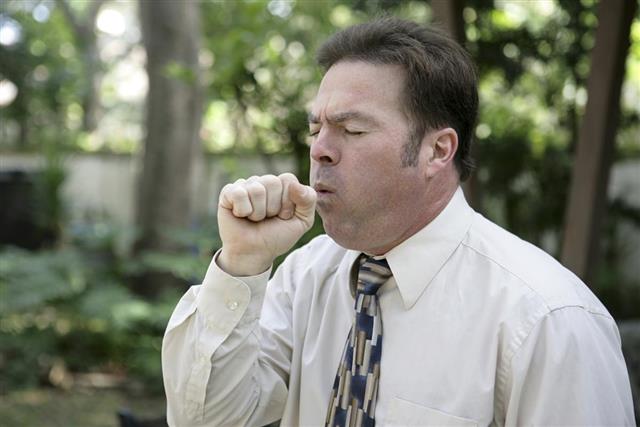
Common causes of mucus in the throat range from allergies to unhealthy eating habits. In the following article, we’ve explained these causes and suggested a few simple remedies.
As a part of the normal metabolic processes, about 1.5 liters of mucus is produced by the lining of the sinuses, trachea, bronchus, and bronchioles, every day. However, most of it ends up being swallowed unknowingly.
This secreted mucus plays a major role of filtration during the breathing process, and helps in preventing foreign particles from getting into the respiratory system. It is the mucus that moistens the nasal passages and inhaled air, traps allergens, protects the lungs, and prevents infections.
Nevertheless, the presence of excessive mucus in the throat all the time is quite an annoying condition, especially if it clogs up the throat while speaking.
Excessive throat mucus gives rise to a feeling that something is trapped inside, where one ends up coughing frequently to expel it. However, this may lead to wear and tear of the tissues that form the throat lining, and may cause mild bleeding. Symptoms like soreness and inflammation can also be experienced. If left untreated, excessive mucus can even invite infections and cause bad breath (halitosis).
Allergies are by far the most common cause of mucus accumulation in the throat. Those who are hypersensitive to smoke, fumes, noxious gases, pollen, and seasonal allergens, should avoid exposure to factors that trigger its formation. An easy way to achieve the same, is covering the nose and mouth completely while going outdoors, in order to shield oneself from inhaling harmful fumes.
One cannot emphasize enough on the negative effects of chronic smoking. Prolonged smoking causes mild to severe inflammation of the mucus lining, thereby triggering increased production of mucus in the nose and throat. The same problem is manifested with excessive consumption of alcohol and caffeinated food items.
Just like environmental pollutants, consuming allergenic food, results in mucus buildup. Milk and dairy products aggravate mucus in the throat, especially during the onset of a common cold, seasonal flu, and even fever. Other food items that worsen throat mucus are eggs, wheat-based products, and whole grains.
As already mentioned, mucus helps us fight against invading microbes. When there is a pathogenic infection, the body tends to secrete excessive amounts of mucus as a defense mechanism, which causes congestion. This sticky and thick mucus is then accumulated in the throat and is later flushed out of the body.
Other causes that are not very common, include viral infections such as measles, whooping cough, and chickenpox. In theory, any type of infection caused by bacteria, fungi, or viruses, can give rise to excessive mucus production in the nose and throat. This may also signal the onset of viral diseases like strep throat, common cold, flu, or sinusitis.
These include asthma, chronic bronchitis and other chronic obstructive pulmonary disorders (COPD) which involve an inflammation of the mucous membranes of the respiratory airways leading to persistent cough build-up. Chronic bronchitis involves excessive cough formation that persists for a period of three months or more per year. In these cases, one has to resort to symptomatic treatments and home remedies to combat the persistent mucus formation.
Nasal congestion and a constant feeling of phlegm present in the throat, can be experienced by some pregnant women. During this period, the body undergoes a range of hormonal changes, which indirectly increase mucus secretion. Pregnant women are advised to rely on home remedies to curb the symptoms of discomfort, away.
Structural problems like a deviated septum or some sort of impairment of the nose and throat, also pose as a risk for promoting stagnant mucus. If these parts malfunction, the process of effective mucus removal gets adversely affected. In time, the mucus gets lodged in the nose and throat. When this phlegm gets stuck in the lining of the nose and throat, we get a constant feeling of thick and sticky mucus in the back of one’s throat. The presence of mucus in the nasal passages is much easier to expel and requires lesser time to do so, compared to phlegm in the throat. For those suffering from respiratory diseases, it is advisable to expel mucus quickly before it gets lodged in the throat area, so as to avoid future complications.
An effective home remedy is to drink lots of water and other healthy fluids (6-8 glasses of caffeine-free drinks). The fluid dilutes the mucus, which helps in draining it from the throat. This is because, the thicker the throat mucus is, the more difficult it is to expel from the body.
An easy way to treat phlegm in the throat is gargling, preferably with saline water. Gargling with warm saline water 3-4 times daily, not only helps in flushing out throat mucus, but also minimizes the risk of getting an infection. Ensure that you do not swallow the salt solution. Additionally, try steam inhalation for a quick recovery method.
Blowing your nose at regular intervals helps in treating throat mucus. Clearing the nasal passage is a sure way to expel phlegm and prevent it from accumulating in the respiratory tract. Hence, indulge in the habit of blowing your nose, if you suffer from this condition, instead of sniffing it back in every few minutes. Don’t blow your nose too hard, though.
As mentioned earlier, consuming certain foods can exacerbate mucus production. So, it makes sense to avoid them, and worsening the existing problem. Examples of such food items are dairy products, sugar, caffeine, and soybean. However, the food triggers for excessive mucus formation may vary for each individual. Being so, a better alternative is to keep track of the food items and their consequences on your respiratory health; identify your own food triggers; and avoid the consumption of these food items.
Steam therapy is yet another effective methods to relieve respiratory congestion due to mucus. It helps to liquify the mucus and aids the flow of mucus out from the nostrils. Adding tolerable amounts of eucalyptus, menthol or camphor may further enhance the benefits of steam inhalation.
» Adding ground ginger to tea or juices is an age-old remedy to fight cold and throat mucus. You can make a paste out of one teaspoon of honey and half a teaspoon of ginger powder (or use fresh ginger paste). Consuming a spoonful of this paste twice a day quickens the recovery time for throat mucus and speeds up healing of the inflamed cells.
» Preparing a mixture of two tablespoons of honey and an equal amount of grape juice, and consuming it 3-5 times a day is another useful remedy. It serves as a natural expectorant, and provides relief from the excess mucus and associated difficulty in breathing.
» Boil a cup of water and add the juice of one onion and one lemon into it, and let the mixture cool. Drink this liquid mixture 2-3 times a day. A spoonful of honey may be added to enhance the taste, if you do not like the strong onion flavor.
» Using apple cider vinegar for relief from congestion has been suggested since ages. Prepare a mixture of one teaspoon of apple cider vinegar, one teaspoon of honey and one teaspoon of water. Consuming one teaspoon of this mixture thrice a day helps to reduce mucus formation and provides relief from stuffy nose as well.
These are some of the effective remedies for throat mucus. For some people, consuming spicy dishes cooked with cayenne pepper and chili flakes aids in thinning mucus, thus allowing it to drain quickly. The best way to prevent this annoying problem, is to avoid exposing oneself to substances that trigger mucus production. Make sure you refrain from unhealthy habits to prevent a recurrence of throat phlegm. If the symptoms persist, do get yourself examined by your physician.
Disclaimer: This HolisticZine article is for informative purposes only, and should not be used as a replacement for professional medical advice.





